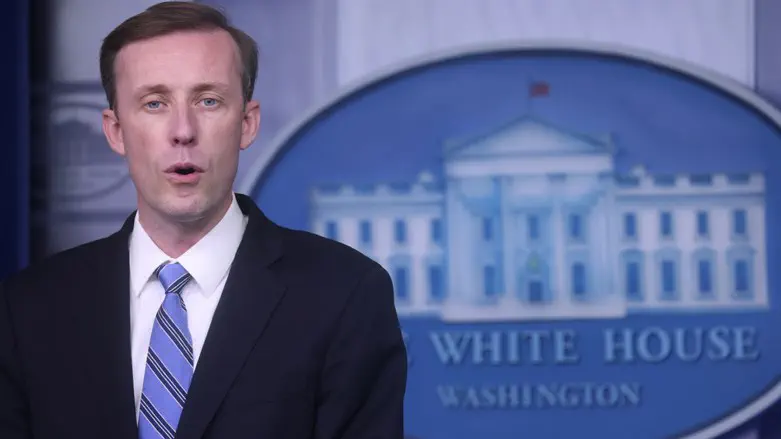
US national security adviser Jake Sullivan told The Financial Times on Saturday that the Biden administration would not sign a defense agreement with Saudi Arabia if the kingdom and Israel did not agree to normalize relations.
Sullivan dismissed the recent suggestions that a bilateral deal between the Biden administration and the kingdom was being considered if Israel refused to make concessions to Palestinian Arabs.
“The integrated vision is a bilateral understanding between the US and Saudi Arabia combined with normalization between Israel and Saudi Arabia, combined with meaningful steps on behalf of the Palestinian people,” he told The Financial Times. “All of that has to come together...you can’t disentangle one piece from the others.”
Sullivan said that President Joe Biden intended to publicly detail “the path [to].. a more peaceful region”.
“I do expect in the months ahead that you will hear from the president and others of us more of the... of the path that we believe could produce a more secure Israel and a more peaceful region,” Sullivan told The Financial Times, adding, “All we can do is work out what we think makes sense, [and] try to get as many countries in the region on board with it and then present it, and it will ultimately be up to the Israeli leadership and frankly ultimately the Israeli people can decide whether that’s a path they want to take or not.”
Last week, it was reported that the Biden administration and Saudi Arabia are finalizing an agreement for US security guarantees and civilian nuclear assistance.
Sources familiar with the details of the talks said that US and Saudi negotiators have prioritized a bilateral security accord that would then be part of a wider package presented to Prime Minister Benjamin Netanyahu, who would have to decide whether to make concessions to secure historic ties with Riyadh, five of the sources said.
State Department spokesperson Matthew Miller told reporters, “We’re very close to reaching an agreement” on the US-Saudi portion of the package, adding that details could be ironed out “in very short order.”
Israel and Saudi Arabia appeared to be on track towards normalization before Hamas’ October 7 attack against Israel and the war in Gaza which followed.
Shortly after the start of the war in Gaza, sources told Reuters that Saudi Arabia is putting the US-backed plans to normalize ties with Israel on ice.
Saudi Foreign Minister, Prince Faisal bin Farhan, later said that he believes talks on normalization between Israel and Saudi Arabia will resume immediately after the conclusion of the war in Gaza.
More recently, the top Saudi diplomat indicated that normalization with Israel requires both an end to the fighting in the Gaza Strip as well as the establishment of a Palestinian state, which Saudi officials have long insisted is a condition for normalization with Israel.
Secretary of State Antony Blinken said recently it could be possible to roll out a framework for the normalization of relations between Israel and Saudi Arabia along with a two-state solution proposal for Israel and the Palestinian Arabs before a Gaza ceasefire is in place, marking a reversal in the order of events that US officials had previously expected to follow.
